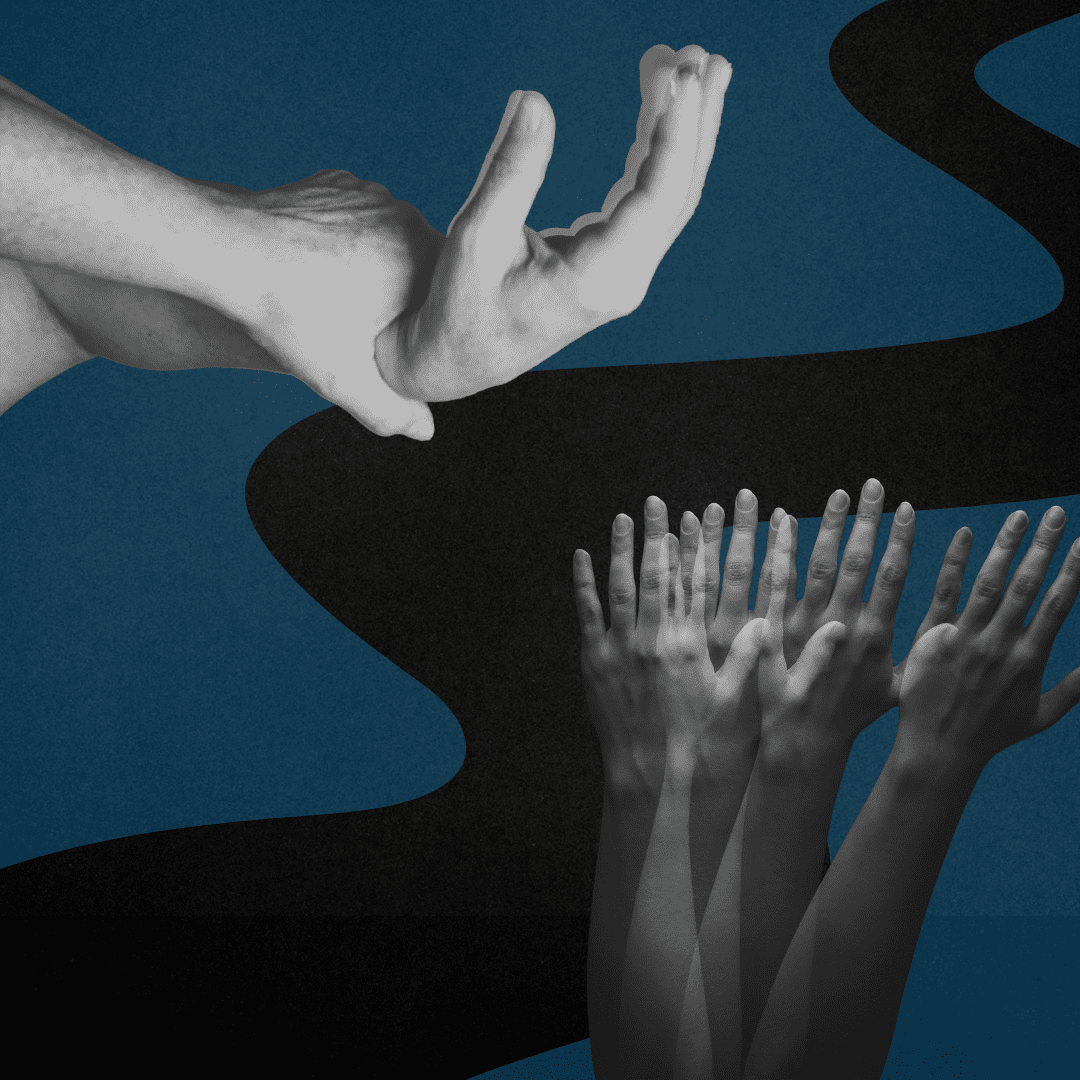If your hands have ever felt shaky after a night of drinking – or after trying to stop – you’re not alone. Alcohol shakes, also called alcohol tremors, are one of the more visible signs that your body is recalibrating in response to alcohol use (or its absence).
While it’s easy to brush off as a weird side effect or hangover symptom, the truth is, alcohol shakes signal that your nervous system has been seriously disrupted. And they deserve attention – not panic, but awareness.
What’s actually happening here? And what can you do about it?
So… what are alcohol shakes?
Alcohol shakes are involuntary tremors that usually show up in your hands, though they can also affect your arms, head, or even voice. People often notice them first thing in the morning—like when pouring coffee or trying to grip something steadily.
These tremors typically show up within 6 to 24 hours after your last drink and are most common among individuals who drink heavily or regularly. In short: They’re a withdrawal symptom, meaning your brain and body are reacting to the sudden absence of alcohol after it has become accustomed to it.
Why does alcohol cause shakes?
To understand this, we need to look at how alcohol impacts your brain.
Alcohol acts as a central nervous system depressant—it enhances a calming brain chemical called GABA and suppresses an excitatory one called glutamate. This is why drinking tends to make people feel relaxed, sleepy, or even uninhibited.
But your brain is smart. Over time, it tries to balance out this sedating effect by reducing GABA and increasing glutamate. When alcohol is suddenly removed, your brain doesn’t instantly return to “normal”— it swings into overdrive, creating a hyper-excited state.
That’s when withdrawal symptoms hit. Shakes are just one of them. Others may include:
- Sweating
- Anxiety or restlessness
- Trouble sleeping
- Nausea
- Racing heartbeat
This overcompensation is why alcohol withdrawal can feel so intense—even if you didn’t think your drinking was “that bad.” According to the National Institute on Alcohol Abuse and Alcoholism (NIAAA), alcohol withdrawal symptoms occur because your brain is struggling to stabilize itself after chronic exposure to alcohol’s sedative effects.
When do alcohol shakes start, and how long do they last?
For most people, alcohol shakes begin between 6 and 24 hours after the last drink. They can last anywhere from a few hours to several days, depending on your drinking history, your overall health, and how your body metabolizes alcohol. They may feel worse during times of stress, fatigue, or dehydration—and often get better with rest and time. But if they’re getting worse (especially after 48 hours), that’s a sign you need to seek medical advice.
Are alcohol shakes dangerous?
Here’s the honest answer: they can be.
On their own, shakes aren’t necessarily dangerous. But they’re also not something to brush off. They may be a sign that your body is entering a more severe withdrawal state, which can spiral into:
While shakes on their own are often mild and manageable, they can also be a red flag for more severe withdrawal—especially if paired with symptoms like:
- Confusion or hallucinations
- High blood pressure or fever
- Seizures These are symptoms of a condition called delirium tremens (DTs), which is rare but life- threatening. If you—or someone you’re with—shows signs of this, don’t wait: call emergency services right away. As Cleveland Clinic warns, alcohol withdrawal seizures or DTs typically occur in individuals with a long history of heavy drinking and should never be managed at home if symptoms are severe.
How to ease alcohol shakes in 5 steps
Can you ease alcohol shakes at home, on your own? Yes – but only if your symptoms are mild. For people who don’t drink regularly and are just feeling jittery after a binge or a night out, the body usually stabilizes within 24–48 hours.
If you’re experiencing mild tremors and don’t have a history of severe alcohol use, there are a few things you can try at home. But proceed carefully—and ALWAYS check with a healthcare provider if there’s any doubt.
1. Hydrate, hydrate, hydrate
Water is your best friend here. Add some electrolytes (like sports drinks or rehydration powders) to support nervous system balance.
2. Eat simply – but regularly
When your body’s recovering, blood sugar swings can worsen the shakes. Stick to bland foods like bananas, toast, soup, or crackers. B-vitamins are especially helpful—particularly thiamine (B1), which alcohol depletes.
3. Rest and reduce stimulation
Sleep and quiet time matter. Avoid loud music, bright screens, or high-stress situations. Even breathing exercises or stretching can help calm your nervous system.
4. Skip the coffee (for now)
Caffeine stimulates your system and might make tremors worse. Reach for herbal tea instead.
5. Track your symptoms
If the shaking worsens, spreads, or is accompanied by other concerning symptoms, seek medical help. Better to be safe.
If your symptoms worsen—or if you’ve had alcohol withdrawal symptoms in the past — please speak with a healthcare provider before trying to detox alone. According to the Mayo Clinic, medically supervised detox may be necessary in moderate to severe cases.
Why do some people get alcohol shakes, and others don’t?
Several factors influence who experiences alcohol shakes, including:
- How much and how often you drink
- Your history of alcohol withdrawal
- Genetics and metabolism
- Age and overall health
- Nutritional status
Put simply, the more your brain has adapted to alcohol, the more jarring it is when that alcohol suddenly disappears.
What if I’m not ready to quit drinking, but I want the shakes to stop?
Fair question. Not everyone who experiences shakes is aiming for sobriety right away. But even short breaks—like “dry weekends” or “sober curious” experiments—can give your nervous system a much-needed reset.
In fact, a study from the University of Sussex found that 70% of people who completed a one-month break from alcohol were still drinking less six months later. So even if you’re not ready to go completely alcohol-free, small steps can help. Start by:
- Spacing out drinks
- Drinking water between alcoholic beverages
- Skipping alcohol on weekdays
- Setting short-term goals like a 7-day or 30-day break It all adds up. Your body will thank you—even for a little breathing room.
When to get professional help
Here’s the truth: alcohol withdrawal can be dangerous. And if you’ve been drinking heavily for a long time, detoxing at home may not be safe. Seek help if:
- You’ve had seizures or DTs in the past
- You’re experiencing hallucinations or confusion
- You’re shaking and have a racing heart or fever
- The tremors don’t improve after 48 hours
You’re not weak for getting support. You’re smart for knowing your limits—and protecting your health.
Alcohol shakes: The warning sign worth listening to
Experiencing alcohol shakes doesn’t automatically mean you’re in danger. But it does mean your nervous system is working overtime -and it might be time to check in with yourself.
Are you drinking more than you want to? Is alcohol starting to affect your sleep, relationships, or mood?
You don’t have to commit to quitting forever just to explore these questions. But recognizing the signs your body is sending – like tremors – is a good place to start. You deserve to feel steady, clear, and in control. And whatever path you take, you’re not alone.

